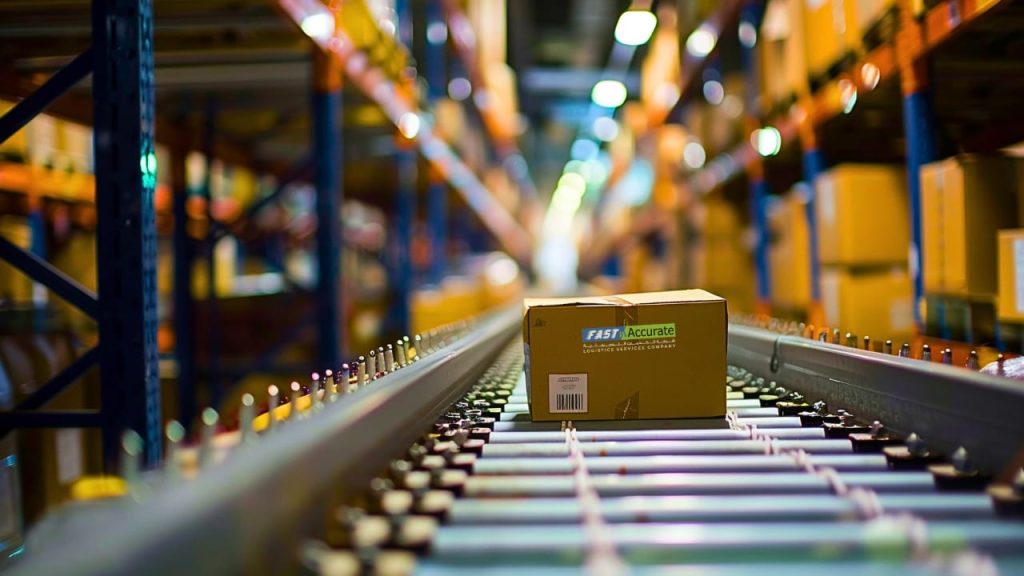
Importing goods into Saudi Arabia can open huge opportunities. But for many businesses, the biggest challenge is not shipping—it’s customs clearance. The process is detailed, rules change often, and mistakes can cost thousands. That’s why understanding customs clearance in Saudi Arabia is not just important—it’s essential for every importer.
This guide covers customs clearance costs, Saudi Arabia’s new tariff and duty rules, and the most common clearance mistakes to avoid.
Why Customs Clearance in Saudi Arabia Matters
Customs clearance is the gateway between your goods and the Saudi market. If you get it right, your shipment moves smoothly. If you get it wrong, your goods may sit at the port, accumulate storage costs, or even face penalties.
For businesses importing into Jeddah, Dammam, and Riyadh, being prepared makes all the difference.
Customs Clearance Costs in Saudi Arabia
The cost of customs clearance in Saudi Arabia is influenced by several factors. Knowing these in advance helps importers avoid surprises:
- Customs Duties – Applied based on the HS Code and product category. Duties range from 5% to 25%.
- Value Added Tax (VAT) – A standard 15% VAT is charged on most imports.
- Excise Tax – Applies to specific goods like tobacco, sugary drinks, and energy drinks.
- Inspection and Handling Fees – Charged if goods undergo physical checks or special handling.
- Brokerage or Agent Fees – Paid to licensed clearance providers managing the process.
- Storage Fees – Added if clearance is delayed and goods remain at the port.
When you calculate your landed cost, include all these elements. Many businesses underestimate total expenses because they only consider freight charges.
Saudi Arabia’s New Tariff and Duty Rules
Saudi Arabia has updated its tariff and duty framework as part of Vision 2030. The goal is to support local industries while ensuring fair trade. Importers should be aware of:
- HS Code Classification – Saudi Customs uses international HS codes. Errors in classification can result in penalties or delayed shipments.
- Higher Duties on Some Goods – To encourage local production, duties on specific categories (such as food items and building materials) have increased.
- Mandatory Electronic Declarations – Importers must file all documents electronically through the Saudi customs system.
- Stricter Compliance Checks – Products must meet Saudi standards and labeling requirements before clearance.
Staying updated with these changes is critical for smooth operations.
Common Customs Clearance Mistakes (and How to Avoid Them)
Even experienced importers can make mistakes that lead to financial loss or shipment delays. Here are the most frequent issues seen in customs clearance in Saudi Arabia:
1. Incorrect Documentation
One missing or inaccurate document—such as a commercial invoice or certificate of origin—can hold your shipment. Always review documents carefully before shipping.
2. Wrong HS Code
Using the wrong HS code means paying the wrong duty. This can trigger penalties or delays. Work with experts to classify goods correctly.
3. Ignoring Full Costs
Importers sometimes forget VAT, excise tax, or inspection fees. This leads to budgeting problems and unexpected expenses.
4. Delayed Submissions
If clearance documents are not submitted on time, your goods may stay at the port, incurring storage fees. Early preparation is key.
5. Overlooking Regulatory Updates
Saudi Arabia updates its customs regulations often. Missing a new rule can stop your shipment. Partnering with a clearance provider helps you stay compliant.
By avoiding these mistakes, businesses save both money and time.
The Role of Professional Customs Clearance Services
Saudi Arabia’s customs system is strict, but with the right partner, clearance doesn’t have to be stressful. A professional logistics provider ensures:
- Accurate and complete documentation
- Correct HS code classification
- Timely submission of declarations
- Real-time updates on regulatory changes
- Faster clearance and reduced storage costs
This is why companies importing into Jeddah, Dammam, and Riyadh often rely on experienced clearance providers rather than trying to manage the process alone.
FAQs on Customs Clearance in Saudi Arabia
1. How long does customs clearance take in Saudi Arabia?
If documentation is correct, clearance usually takes 1–3 business days. Delays occur when goods are inspected or documents need correction.
2. What are the mandatory documents for customs clearance?
Commercial invoice, packing list, bill of lading/airway bill, certificate of origin, and any product-specific permits.
3. Can businesses clear goods without an agent?
Yes, but most importers choose licensed brokers to save time and avoid errors.
4. Is VAT charged on all imports?
Yes, 15% VAT applies to almost all imported goods, calculated on total value plus freight and duties.
5. What happens if goods don’t meet Saudi standards?
Shipments may be rejected, delayed, or returned. Pre-checking compliance saves time and cost.
Final Thoughts
Customs clearance in Saudi Arabia can seem complex, but with the right knowledge and support, it becomes manageable. Importers who understand costs, stay updated on tariff changes, and avoid common mistakes enjoy faster, smoother trade operations. At Fast n Accurate Logistics, we specialize in customs clearance in Jeddah, Dammam, and Riyadh. Our team ensures compliance, accuracy, and efficiency so your goods move without delays. Contact Fast n Accurate Logistics today for reliable, cost-effective customs clearance in Saudi Arabia.





